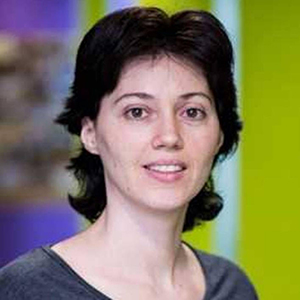 Research topic: Methods to Achieve Better Results for Epipolar Geometry Estimation.
Research topic: Methods to Achieve Better Results for Epipolar Geometry Estimation.
Supervisor: Prof. Ilan Shimshoni.
Epipolar geometry estimation is a fundamental problem in computer vision. The estimation of the epipolar geometry is especially difficult in two cases. The first difficult situation is wide baseline images. The second difficult situation is when scene contains repeated structures. In both of these types of cases even state-of-the-art algorithms tend to fail. For that reason, in our research we proposed three different methods to achieve better results for epipolar geometry estimation.In the first approach we focus on building facades, which are one of the most common repeated structures. In that work we address two common cases: one in which the repeated objects are partially organized horizontally and vertically and another in which a 2D grid of repeated objects is assumed. In contrast to most image registration algorithms, in which repeated features are neglected, in our algorithm they play a major role in both the estimation and the verification steps. The algorithm divides the task of epipolar geometry estimation into three steps. It first rectifies the images. Then it recovers the homography associated with the rectified facade and finally recovers the epipole. We extract all the SIFT keypoints and their descriptors in both views. We then distinguish and handle separately repeated structures and other features. In our method similar features are clustered in each of the two images, after which clusters of features are matched. From these cluster pairs, a set of hypothesized homographies of the building facade are generated and ranked. For each candidate homography the epipole is recovered in a separate step.In the second approach we developed a general deterministic preprocessing step for epipolar geometry estimation algorithms. This method is not limited to images with visible planar facades. Moreover, it is designed to deal with both wide baseline images and scenes containing repeated structures. Our method generates a set of putative feature matches between the two images, accompanied by prior probabilities that each match is correct. Our output is general and can be incorpoVI rated within any algorithm from the guided RANSAC family. The algorithm consists of three steps. In the first step, it extracts from a pair of images local features and clusters similar features from each image. The clusters are matched yielding a large number of matches. Then pairs of spatially close features are matched and ranked by a classifier. The highest ranked 2keypoint-matches are selected. In the last step, fundamental matrices are computed from each two 2keypoint-matches. A matchs score is the number of fundamental matrices, which it supports. This number combined with scores generated by standard methods is given to a classifier to estimate its probability. The ranked matches are given as input to state-of-the-art algorithms. In the third approach we propose a method to improve the quality of output produced by epipolar geometry estimation algorithms. The output of epipolar geometry estimation algorithms are the fundamental or essential matrices and a set of matches which satisfy the epipolar constraint. In order to improve it we developed a method to detect the incorrect matches from the matches provided by the EG estimation algorithm. Our algorithm works in two steps: a step which uses local information and assigns probabilities of being correct for each pair of matches and a step which uses global optimization to classify correct/incorrect each match separately. After the incorrect matches have been eliminated, a more accurate estimate for the fundamental/essential matrix can be computed.All the three our algorithms when tested on real images give significant performance improvement compared to the state-of-the-art algorithms.
Email:



